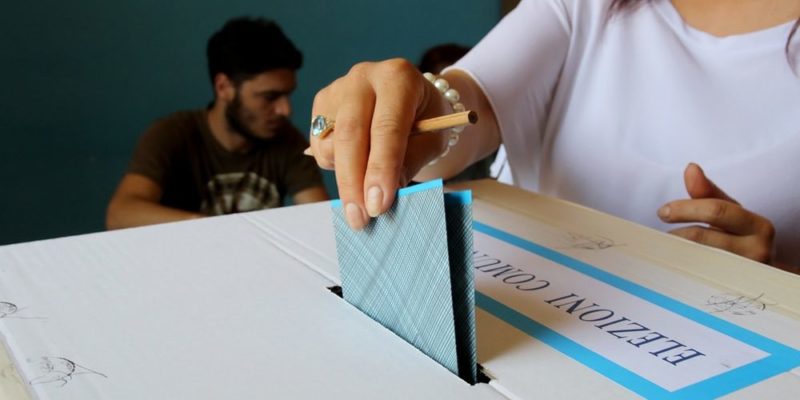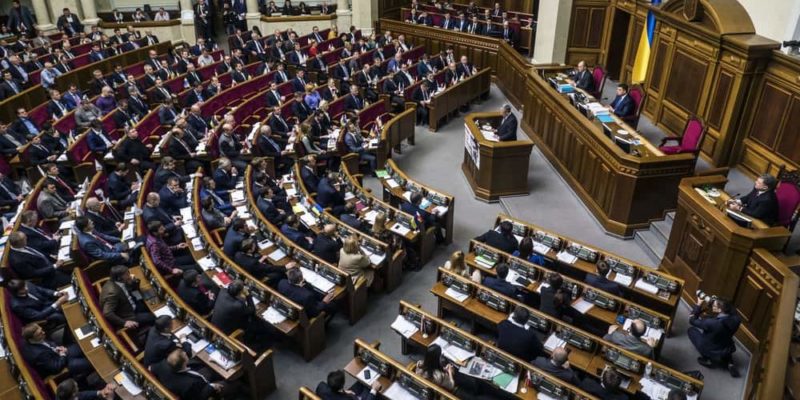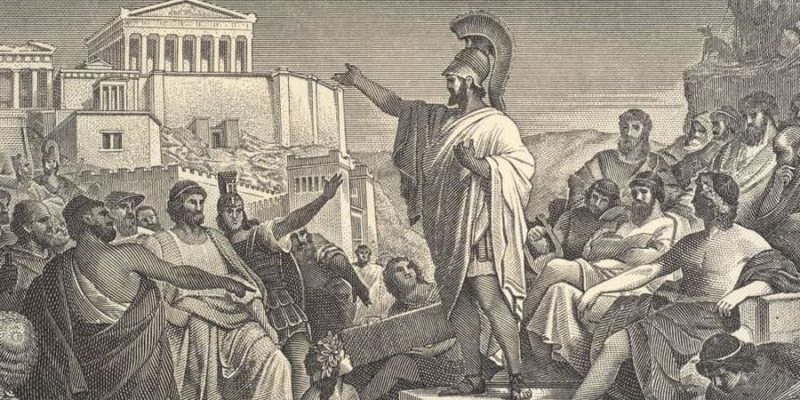We explain what a democratic government is, what types exist and what their characteristics are. Also, how it works.

What is a democratic government?
A democratic government is a model of State administration that meets the minimum requirements to be considered a democracy. This means that, in a democratic government, Political power is exercised based on the principle of the sovereignty of the people that is, that sovereignty resides in the people and they exercise it directly or indirectly, since “democracy” comes from the Greek words let's give (“people”) and kratos (“power”) and means “government of the people.”
In a democratic government, Citizens have a certain degree of participation in political decisions either directly (for example, in popular assemblies) or indirectly (for example, through the election of their representatives in the government or in Parliament). This happens within a minimum framework of guarantees that are usually supported by a political Constitution and that ensure freedom, equal rights and justice.
Democracy is a system of government that It emerged in ancient times, in the Greek city-state of Athens in the 6th century BC. c. It reappeared in the West after the fall of the Old Regime in the 18th and 19th centuries and with the establishment of the republic as a model of State organization.
Currently, it is the majority system of government throughout the world, however, It does not work the same way in all countries. In some cases, there are forms considered imperfect or even authoritarian governments that have only an appearance of democracy (considered authoritarian regimes) or that combine democracy with authoritarianism (considered hybrid regimes).
In fact, of the 167 nations included in the democracy index (Democracy Indexin English) prepared by the Intelligence Unit of the London newspaper The Economist For the year 2023, four blocks of countries are distinguished, ordered according to how democratic their government model is:
- Full democracies (25 countries, 14.4% of the total)
- Imperfect democracies (50 countries, 29.9% of the total)
- Hybrid regimes (34 countries, 20.4% of the total)
- Authoritarian regimes (59 countries, 35.5% of the total)
In any case, and despite its difficulties and limitations, in the West democratic governments are usually considered the best possible method of government. Its practices and institutions are encouraged and awarded by various international organizations (such as the United Nations, UN) and regional organizations (such as the Organization of American States, OAS).
Key points
- A democratic government is the political regime in which sovereignty resides in the people, who exercise it directly or indirectly.
- Democracy emerged in Athens in the 6th century BC. C., reappeared in the West in the 18th and 19th centuries, and was consolidated in many countries around the world throughout the 20th century.
- Democratic governments usually guarantee the rule of law, free elections, the separation of powers, freedom of expression and the defense of human rights.
- Currently, democratic governments are usually representative (political authorities are elected by popular vote) and can follow a parliamentary or presidential model.
- Some governments that present themselves as democratic are considered imperfect democracies, hybrid regimes (mixture of democracy and authoritarianism) or even authoritarian regimes.
- See also: Forms of government
Characteristics of a democratic government
The main characteristics of a democratic government are the following:
- Guarantee the rule of law. This means that all citizens have rights, duties and guarantees enshrined in a national Constitution, such as equality before the law (which is applied with equal criteria without discriminating for political, ethnic, gender, class, among others), and limits are established on political power to guarantee the freedom and security of individuals.
- Make reliable choices. The political authorities (generally those that make up the executive branch and the legislative branch) are elected by the people in free elections, that is, through universal, secret and legitimate elections, without manipulations or coercive mechanisms that could condition the vote.
- Guarantee the separation and independence of powers. The public powers (executive, legislative and judicial) are independent and monitor each other, which allows political debate to be carried out in an organized manner and that no state authority (especially the executive branch) imposes itself on the others and governs authoritarian way.
- Respect universal human rights. The State guarantees the defense and protection of human rights, enshrined in documents such as the UN Universal Declaration of Human Rights (1948). Some of these are the right to life, liberty, security, work, nationality, and not to be a victim of slavery, torture or discrimination, among others.
- Respect freedom of expression. The fully democratic government guarantees freedom of expression and freedom of the press, enshrined as human rights by the UN. These freedoms allow independent media to exist that challenge the government and inform the public about what is happening, without being subject to censorship and persecution or reprisals against journalists.
- Defend the party system. Public debate, alternation in the national government or local governments and parliamentary activity are supported by the defense of the party system, which is part of the freedom of association recognized as a human right. This can take the form of multipartyism (several political parties) or bipartisanship (two hegemonic political parties). It opposes single-party regimes (even though these often present themselves as democratic systems).
How does a democratic government work?

modern democratic governments They operate based on representation and political participation. According to its constitutional texts, sovereignty resides in the people (that is, in all citizens), but they usually govern through their representatives, who are chosen in free elections.
Through freedom of expression and the party system, different political opinions must be able to express themselves in the public debate on how to administer the res publica (that is, the public thing). Besides, Political freedom must guarantee that the various political tendencies make their proposals known and have the possibility of participating in the electoral competition.
In addition to the elections held to elect representatives of the legislative branch or the executive branch, democratic governments can apply popular consultation mechanisms such as plebiscites or referendums, which in some cases serve to obtain the opinion of citizens on certain important issues. In these cases, The position that obtains the greatest popular support in accordance with the country's electoral laws will be the one that prevails..
However, in democracies not everything can be put to a vote. In particular, those measures that may go against democracy itself or fundamental rights, or that violate the rule of law, are excluded from the popular consultation.
To guarantee the functioning of democracy, public powers enjoy independence according to the principle of separation of powers:
- Executive power. He is the one who leads the State, proposes and implements the government plan and executes the laws.
- legislative branch. It is in charge of drafting, modifying or repealing laws, and supervising the action of the executive branch. It usually consists of a Parliament in which the different political forces of the country are represented.
- judiciary. He is responsible for administering justice, interpreting the laws and monitoring their compliance, and defending the guiding principles of the Constitution. It is the only public power that is not elected by popular vote, but by appointment of the legislative branch or by procedures that involve the different powers of the State.
Types of democracy

There are different types of democracy, classified according to various separation criteria.
Depending on the mechanism of citizen participation in government, democracy can be:
- Direct or participatory democracy. Type of democracy that was put into practice in Athens in Antiquity and proposed by some modern and contemporary political theorists, such as Jean-Jacques Rousseau (1712-1778). It proposes the direct participation of the people in decision-making, mainly through holding assemblies. A modern adaptation of participatory democracy is the holding of popular consultations, such as plebiscites and referendums, in which the people participate in a relatively more direct way.
- Indirect or representative democracy. The most common type of democracy in current democratic governments, in which, through the representative regime, the people elect their representatives in free elections so that they make political decisions on their behalf. That is to say, citizens transfer part of their sovereignty to their representatives, and thus participate indirectly in the management of the State.
Depending on the type of institutional organization, democracy can be:
- parliamentary democracy. Type of democracy in which the popular vote elects the representatives that make up the legislative power (Parliament), which has the greatest share of political power since the executive power (the government) arises from it, which depends on the support of the government to govern. Parliament, to which he is accountable.
- presidential democracy. Type of democracy in which the head of the executive branch (the president) is directly elected by the citizens. Therefore, he retains a greater share of political power vis-à-vis Parliament, since he is directly responsible to the people, who can maintain or withdraw their support (for example, by not re-electing him in a new presidential election).
document.addEventListener(“DOMContentLoaded”, (e) => {
var sliderContainer, slider;
sliderContainer = document.getElementById(‘block_6579b6dc0eb1faa26c6c2a6852c6b255’);
if (typeof initSlider !== ‘function’) {
console.log(‘Swiper haven\’t been loaded’);
sliderContainer.className += ‘ fw scroll-snap’;
return;
};
options = {
direction: ‘horizontal’,
speed: 1000,
slidesPerView: ‘auto’,
// slidesPerGroup: 1,
centerInsufficientSlides: true,
// centeredSlides:true,
spaceBetween: 15,
breakpoints: {
720: {
// centeredSlides: false,
// slidesPerGroup: 2,
spaceBetween: 25
},
},
pagination: {
el: ‘.swiper-pagination’,
type: ‘bullets’,
clickable: true
},
}
slider = initSlider(sliderContainer, options);
})
References
- Bobbio, N., Matteucci, N. and Pasquino, G. (Dirs.). (2015). Politics Dictionary. 21st century.
- Dahl, R. A. (2022). democracy. Ariel.
- Dahl, R.A., Froomkin, D., & Shapiro, I. (2024). Democracy. Encyclopedia Britannica. https://www.britannica.com/
- Lijphart, A. (2012). Models of democracy. Forms of government and results in 36 countries. Ariel.
- Sartori, G. (2007). What is democracy? Taurus.





